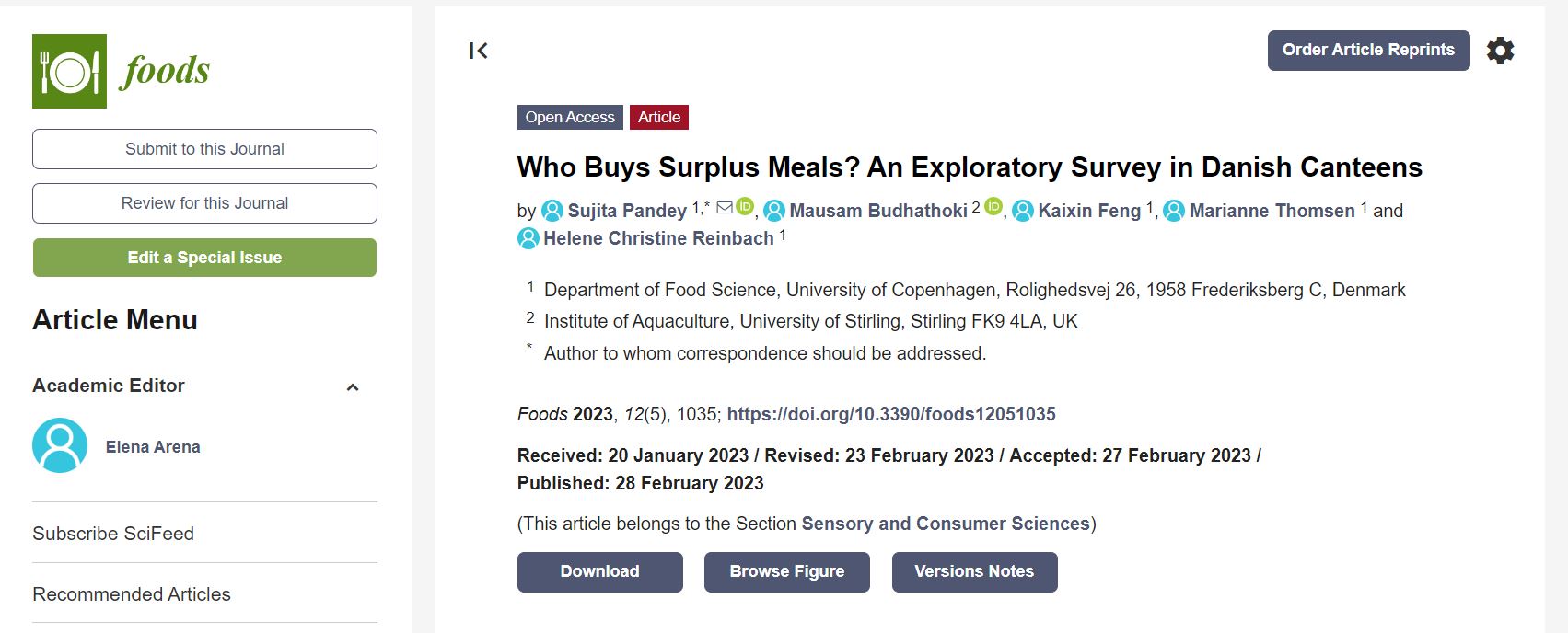Developed in the framework of the EU-funded FOODRUS project, this study performed consumer segmentation through a modular food-related lifestyle (MFRL) instrument and determined consumers’ buying behaviour towards surplus meals in canteens employing the theory of reasoned action (TRA). A survey was conducted using a validated questionnaire from a convenient sample of 460 Danish canteen users.
Four food-related lifestyle consumer segments were identified by employing k-means segmentation: Conservative (28%), Adventurous (15%), Uninvolved (12%), and Eco-moderate (45%). The Partial Least Square Structural Equation Modelling (PLS-SEM) analysis indicated that attitudes and subjective norms were significantly influencing surplus meal buying intention to further influence buying behaviour. Environmental objective knowledge was significantly influencing environmental concerns to further influence attitudes and behavioural intention.
However, environmental objective knowledge had no significant influence on attitude towards surplus meals. Male consumers with higher education, those having higher food responsibility and lower food involvement, and convenience scores had higher surplus food buying behaviour. The results can be used to inform policymakers, marketers, business professionals, and practitioners to promote surplus meals in canteens or similar settings.
READ THE FULL ARTICLE
Name of organisation : FOODRUS project
Contact email: e.casazza@greenovate-europe.eu
Further information: https://www.foodrus.eu/
Date of publication: 2023-02-28

